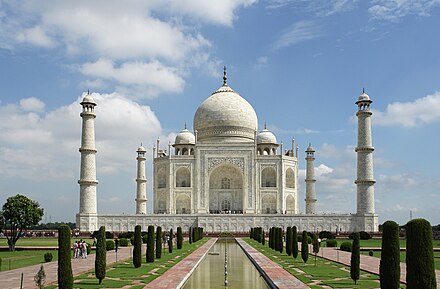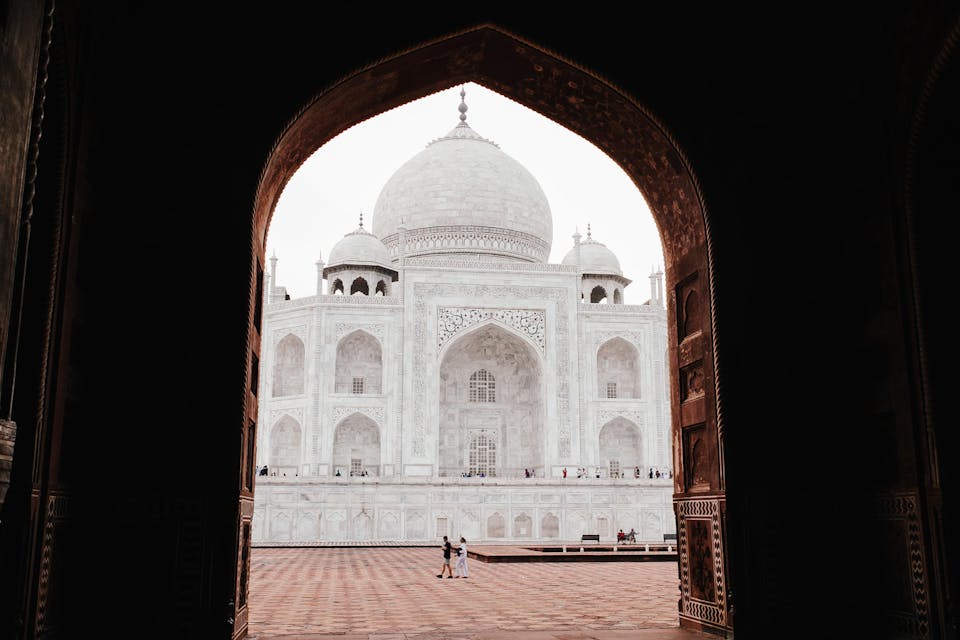7 Secrets of the Taj Mahal You Never Knew

The Taj Mahal, one of the most iconic landmarks in the world, is a testament to the eternal love of Emperor Shah Jahan for his wife Mumtaz Mahal. While most people are familiar with its stunning beauty and romantic history, there are several secrets hidden within its walls that many are unaware of. In this blog post, we will uncover 7 secrets of the Taj Mahal that you never knew.
1. The Changing Colors
Did you know that the Taj Mahal changes its colors throughout the day? From a soft pink hue in the morning to a dazzling white during the day and a golden glow at sunset, the monument reflects the different moods of the sky. This magical transformation is a sight to behold and adds to the ethereal beauty of the Taj Mahal.

2. The Hidden Mosque
Inside the Taj Mahal complex, there is a hidden mosque known as the “Masjid-i-Jahan Numa.” While the Taj Mahal is primarily a mausoleum, this mosque serves as a place of worship. It is strategically located on the western side of the complex, facing Mecca. The mosque’s design complements the overall symmetry of the Taj Mahal and adds to its architectural grandeur.
🕌✨🇮🇳
3. The Secret Chambers
Beneath the main chamber of the Taj Mahal, there are several secret chambers that remain closed to the public. These chambers were built to house the precious belongings of Mumtaz Mahal and Emperor Shah Jahan. It is believed that these chambers contain exquisite jewelry, artifacts, and other treasures, making them a hidden treasure trove within the monument.
4. The Fragrant Gardens
The gardens surrounding the Taj Mahal are not just visually stunning but also filled with fragrant flowers. The Mughals were known for their love of gardens, and the Taj Mahal’s gardens are no exception. The carefully manicured lawns are adorned with various flowers, including roses, jasmine, and marigolds, creating a sensory experience for visitors.
5. The Optical Illusion
As you approach the Taj Mahal, it appears to grow in size. This optical illusion, known as the “Musselman’s Law,” is a result of the monument’s architectural design. The Taj Mahal was built on a raised platform, and the surrounding structures, such as the gateway and the gardens, are intentionally smaller in scale. This clever design technique creates an illusion of grandeur and magnificence.
6. The Precious Gem Inlays
The intricate designs on the marble walls of the Taj Mahal are not just carvings; they are inlaid with precious gemstones. The craftsmen used semi-precious stones like lapis lazuli, jasper, and turquoise to create intricate floral patterns and calligraphy. These gemstone inlays add a touch of opulence and brilliance to the already stunning architecture of the Taj Mahal.
7. The Mystery of the Black Taj Mahal
Legend has it that Emperor Shah Jahan had planned to build a mirror image of the Taj Mahal in black marble on the opposite bank of the Yamuna River. This structure, known as the “Black Taj Mahal,” was intended to be his own mausoleum. However, due to various reasons, including his imprisonment by his son, the Black Taj Mahal was never built. While there is no concrete evidence of its existence, the story of the Black Taj Mahal continues to intrigue historians and visitors alike.
🏰🌹🌙
The Taj Mahal is not just a monument; it is a masterpiece that holds many secrets within its walls. From its ever-changing colors to its hidden chambers and fragrant gardens, each aspect of the Taj Mahal adds to its allure and mystique. Visiting this architectural marvel is an experience that will leave you in awe of its beauty and captivated by its secrets.
Plan your trip to India and witness the magic of the Taj Mahal firsthand. 🇮🇳✈️🗺️
For more information about the Taj Mahal, visit the official website.

